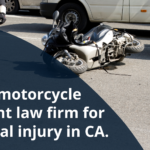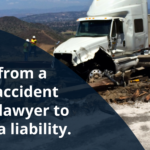There is no single definition of a catastrophic injury. However, these injuries are typically characterized by their severity and long-term impact. These injuries can be caused by a variety of accidents, including car accidents, workplace accidents, and medical malpractice. The laws of California can be complex, and it is important to understand what your rights are if you have suffered a catastrophic injury as you may be entitled to compensation for your medical expenses, lost wages, pain and suffering, and other damages.
In 2022, California saw an estimated 1.2 million non-fatal catastrophic injuries, primarily caused by car accidents (40%), workplace incidents (15%), falls (10%), and assaults (5%). The injuries cost roughly $1 million per case on average. Leading injury types include traumatic brain injuries (30%), spinal cord injuries (20%), amputations (10%), and paralysis (5%), inflicting lasting disabilities, financial strain, and emotional distress on victims and families. Data is from the California Department of Public Health, considering potential variations in actual figures.
Understanding Catastrophic Injuries
The types of catastrophic injuries that can be filed as legal cases in California vary depending on the specific circumstances of the case. However, some common types of catastrophic injuries that can be filed as a legal case in California include:
- Traumatic brain injuries (TBIs): TBIs are caused by a sudden, violent blow to the head or a jolt to the brain. They can lead to a wide range of physical and cognitive impairments, including difficulty with memory, concentration, and communication.
- Spinal cord injuries (SCIs): SCIs are caused by damage to the spinal cord, which is the bundle of nerves that runs down the back and connects the brain to the rest of the body. SCIs can lead to paralysis, loss of sensation, and other physical impairments.
- Amputations: Amputations are the loss of a limb or body part. They can be caused by a variety of factors, including accidents, injuries, motor vehicle accidents, slip and fall accidents, and medical conditions.
- Severe burns: Severe burns are burns that cover a large area of the body or that are deep enough to damage the underlying tissues. They can lead to scarring, disfigurement, and other physical impairments.
- Paralysis: Paralysis is the loss of muscle function in one or more parts of the body. It can be caused by a variety of factors, including spinal cord injuries, long-term disability, stroke, and brain injuries.
These injuries can have a profound impact on the victim’s physical and emotional well-being. They can also lead to significant financial losses, as the victim may need to pay for medical expenses, rehabilitation, and lost wages.
Legal help can you get after facing a catastrophic injury in California
California’s laws provide the foundation for addressing catastrophic injuries resulting from incidents like car accidents, workplace mishaps, and medical malpractice. Understanding these laws is vital for affected individuals and families seeking compensation through personal injury claims, covering medical expenses, lost income, and other damages. Profound knowledge of these regulations safeguards victim rights, ensures legal adherence, and supports advocacy for broader legal improvements. To counter potential exploitation by insurance companies and involved parties, seeking guidance from experienced attorneys becomes crucial. Awareness of specific California laws concerning catastrophic injuries empowers individuals to navigate the legal landscape effectively and pursue justice.
- The California Tort Claims Act (CTCA): This law sets out the rules for when you can sue a government entity for a catastrophic injury.
- The California Workers’ Compensation Act (WCA): This law provides benefits to workers who are injured on the job, including catastrophic injuries.
- The California Product Liability Act: This law allows you to sue the manufacturer of a defective product if you are injured by it.
- The California Premises Liability Act: This law allows you to sue the owner of a property if you are injured on their property due to their negligence.
- The California Wrongful Death Act: This law allows the family of a person who dies due to a catastrophic injury to sue for damages.
There is a time limit, known as a statute of limitations, for filing a personal injury claim for a catastrophic injury. This time limit varies depending on the type of injury and the laws of your state. It is important to file your case within the statute of limitations, or you may be barred from recovering any compensation.
Conclusion
In the unfortunate event that you’ve sustained a catastrophic injury, it becomes crucial to engage in a conversation with a seasoned personal injury lawyer to explore and examine your legal avenues. An experienced personal injury attorney possesses the expertise needed to assess the viability of your situation and can provide valuable insights into whether you have a valid claim. Furthermore, should you opt to pursue legal action, they are well-equipped to stand as your legal representative in court, ensuring that your rights and interests are effectively advocated for throughout the legal process. By choosing 2H Law Firm, you’re selecting a team that is well-versed in California’s laws and regulations, has a track record of success in similar cases, and is committed to fighting tirelessly on your behalf. Contact us today at (619) 374-9320 to schedule a free consultation.










